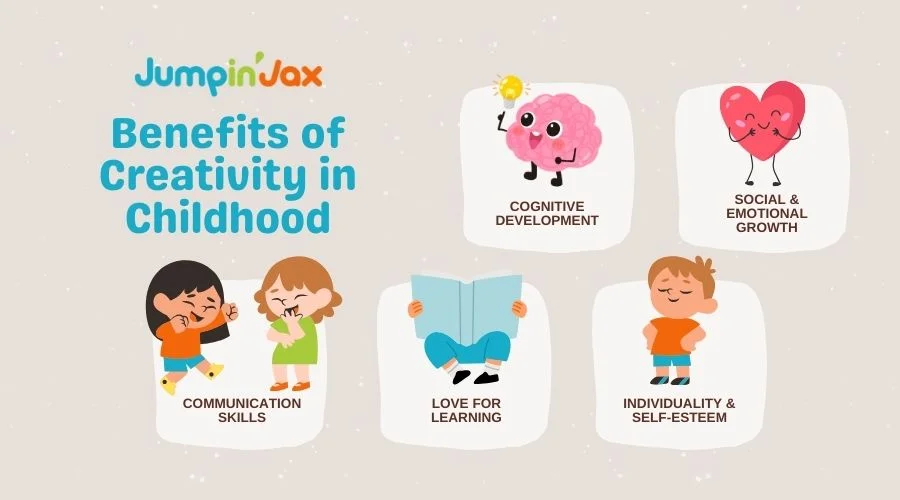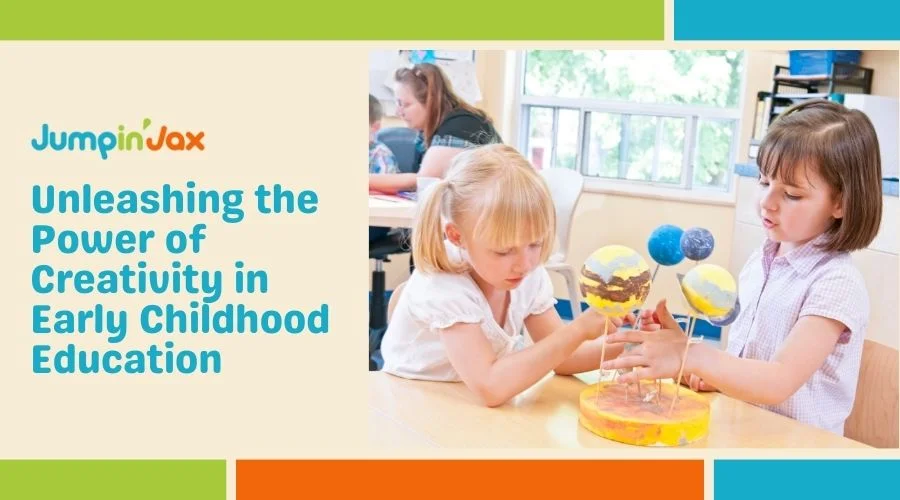A child’s lifelong learning journey lays the basis for early childhood education (ECE). While traditional academic skills are undoubtedly important, the importance of creativity in forming young brains is becoming more apparent. We will examine what early childhood education with a focus on creativity implies in this article, where it can be found, and how it can be integrated into a curriculum.
Parents, educators, and employers all recognize the importance of fostering creativity as a key soft skill for students. Nonetheless, creativity can sometimes seem elusive, challenging to convey, and resistant to standardized measurement. A report from Paramus Daycare Learning highlights that teachers have observed remarkable enhancements in student retention, problem-solving aptitude, and critical thinking skills when they place a strong emphasis on cultivating creativity within their teaching methodologies.
This creative focus often synergizes with the integration of technology as a transformative tool, enabling students to engage in activities like crafting multimedia presentations and conducting research. Intriguingly, even when access to technological resources is limited, many teachers have ingeniously devised methods to infuse creativity into their teaching using commonplace classroom materials.
What is Early Childhood Education with an Emphasis on Creativity?
Early Childhood Education with an emphasis on creativity is an educational approach that prioritizes the development of a child’s creative thinking, imagination, and problem-solving abilities. It goes beyond rote learning and encourages children to explore, experiment, and express themselves in various ways. It is about nurturing a child’s innate creativity and inspiring a lifelong love for learning.

Where Can You Find Early Childhood Education with an Emphasis on Creativity?
ECE with an emphasis on creativity can be found in various educational settings, including:
- Progressive Preschools: Many preschools incorporate creative activities into their curriculum, offering children opportunities for artistic expression, imaginative play, and hands-on learning.
- Montessori Schools: Montessori education places a strong emphasis on self-directed learning, allowing children to explore their interests and engage in creative endeavors.
- Reggio Emilia Approach: This Italian educational philosophy values the child’s unique perspective and encourages creative expression through art, project-based learning, and collaboration.
- Public and Private Schools: Many public and private schools recognize the importance of integrating creativity into their ECE programs.
How to Integrate Creativity into Early Childhood Education
Incorporating creativity into ECE can be achieved by:
- Providing Open-Ended Materials: Offer art supplies, building blocks, and other open-ended materials that allow children to explore and create freely.
- Encouraging Curiosity: Foster a sense of wonder by allowing children to ask questions and explore topics of interest.
- Embracing Storytelling: Promote a love for reading and storytelling, which enhances a child’s imagination and language skills.
- Allowing Unstructured Play: Unstructured playtime lets children experiment, collaborate, and create games and narratives.
Examples of successful implementations:
- HighScope Educational Research Foundation: HighScope’s approach emphasizes active participatory learning, empowering children to take an active role in their education.
- The Creative Curriculum: This widely used curriculum incorporates creative experiences and hands-on learning, nurturing children’s creativity.
Benefits of Emphasizing Creativity in Early Childhood Education
- Cognitive Development: Encouraging creativity enhances problem-solving skills, critical thinking, and memory.
- Social and Emotional Growth: Creative activities provide opportunities for self-expression, emotional regulation, and teamwork.
- Communication Skills: Engaging in creative activities such as storytelling and role-playing helps children develop strong communication skills.
- Love for Learning: Fostering creativity from a young age instills a lifelong passion for learning.
- Individuality and Self-Esteem: Children gain confidence in their abilities when they are allowed to express themselves creatively.
Early childhood education emphasizing creativity is a transformative approach that equips young learners with the skills and mindset needed to thrive in a rapidly changing world. By allowing kids to experiment, create, and innovate, we nurture the next generation of critical thinkers, problem solvers, and lifelong learners. As parents and educators, we must champion the power of creativity in early childhood education, ensuring that children can unleash their imaginations and provide a solid foundation for success that will last a lifetime. So, let us embark on this creative journey, knowing that the seeds of creativity we plant today will yield a bountiful harvest in the future.






